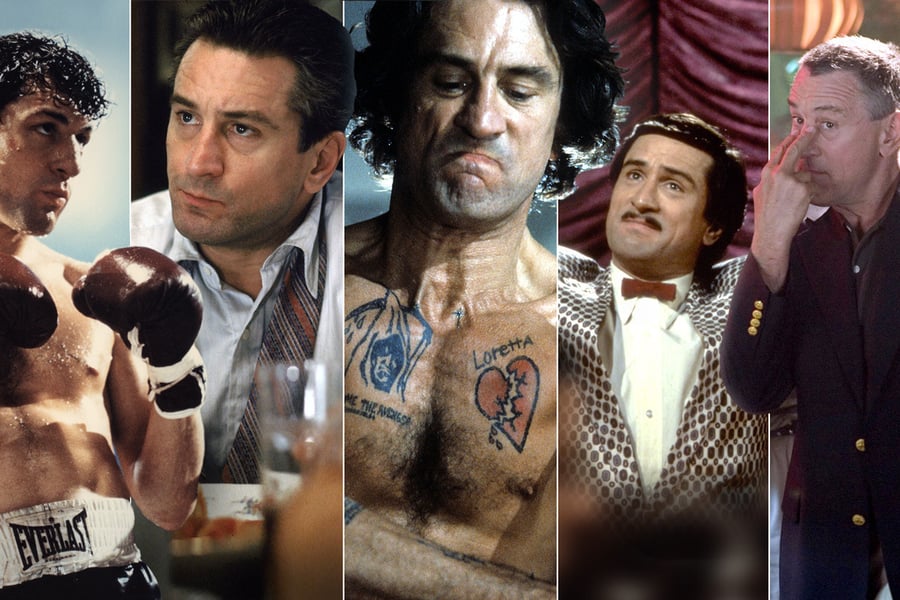Robert De Niro’s Best, Worst and Craziest Performances
From ‘Raging Bull’ to ‘Rocky & Bullwinkle’

Resolved: Robert De Niro is one of the greatest actors of all time.
Also resolved: For the past decade or so, Robert De Niro has been appearing in a lot of movies that don’t necessarily make the best use of his talents. Indeed, when one looks at the broad arc of his career, it’s hard not to notice the high concentration of masterpieces in the Seventies, Eighties, and Nineties — and the sheer drop-off that occurs once his career hits the aughts. That said, who can blame a guy for wanting to mix things up once in a while? If he tried to pull a Raging Bull every other movie, he’d probably die — literally.
Case in point: The Intern, a comedy in which the actor plays a 70-year-old retiree who becomes an intern for a hot new fashion e-commerce company run by Anne Hathaway? While we’re not in Vito Corleone territory, let’s not forget that De Niro has been known to triumph in mainstream comedies from time to time. In the meantime, we decided to look at De Niro’s filmography – that’s more than 95 movies, by the way – and suss out truly Good (the great performances that will forever define his career and stand as testaments to the power of acting), the genuinely Bad (the paycheck gigs, the flops, and the just plain awful decisions), and, well, the Ugly — those De Niro performances that are too strange, too out there to classify as either across-the-board Good or Bad.
And for the last time: Yes, we are, in fact, talkin’ to you.
[Editor’s Note: A version of this list was originally published in September 2015]
From Rolling Stone US



































































